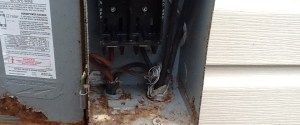March 4, 2015
Buying a Home Through Realtors Versus Foreclosure Sales
Recently a friend shared with me her interest in purchasing a home at a foreclosure auction. Many buyers look to foreclosures in the hope of finding a bargain. Foreclosure sales occur year-round. On the other hand, “conventional” sales through realtors follow a seasonal pattern. When the ice and snow melt and winter winds retreat northward, sellers start to put their homes on the market. In March, potential buyers call real estate agents and loan officers. The first crop of “For Sale” signs is a harbinger of spring. Experienced real estate professionals and investors know that finding the right foreclosure purchase is not as simple as reading an advertisement, showing up at the sale and making a bid. But is this option right at all for families seeking a place to live? Sometimes foreclosure investments do not work out well even for seasoned investors. Today’s blog post compares buying a home through realtors versus foreclosure sales in Virginia.
- Salespersons vs. Debt Collectors: Personal interaction defines shopping experiences. Real estate agents advertise the property through internet listings, brochures, signage and open houses. With the help of their own agent, potential buyers bid against each other. In a “conventional” property sale, the buyer’s interface is through these sales and marketing professionals. By contrast, debt collection attorneys lead foreclosures in Virginia. The lender retains the attorney to collect on the current owner’s home loan debt. Interested investors go to the front of the courthouse to bid on the property at the sale. In the sale, the debt collection attorney also acts as a trustee. In a previous blog post, wrote about a foreclosure trustee’s duty of impartiality. Buyers must consider the significant difference between doing business through salespersons vs. debt collectors.
- Motives of Current Owner: Real estate transfers through realtors are voluntary. Agents list properties because the sellers want them on the market. If a buyer thought that the seller might sue them after the closing, or refuse to move out, they would never make an offer in the first place. In foreclosure, the previous owners often refuse to leave willingly. The lender or buyer may need to evict them through court in order to get physical possession of the property. Frequently a borrower suffering a foreclosure files a lawsuit against the new owner, the bank or the foreclosure trustee to test the legal validity of the sale. Foreclosure sales have a substantially higher risk of litigation than “conventional” transactions through real estate agents. Investors can’t count on being handed the prior owner’s keys.
- The Condition of the Property: Real estate agents know that sales require exposing the property to the market through internet listings, disclosures, brochures, open houses, signs and home inspections. However, investigating the features and condition of a foreclosure property is a struggle. The trustee usually provides little more than the minimum amount of advertising and disclosures. There is not much of a budget for marketing. The foreclosure property likely needs repair. When homeowners struggle to pay their bills, they often stop making repairs before defaulting on mortgage payments. Most foreclosure properties require substantial renovation before they can be occupied again.
When people shop for a home to live in, usually they want a “turn-key” proposition. They don’t want to invest time and resources before moving in or renting it out. With so many challenges and uncertainties, who would seek to buy a home at a foreclosure sale in Virginia? Well, it’s all about one’s ability to manage risks. This is why often only the bank bids at the foreclosure sale. The only other bidders may be investors who specialize in distressed real estate. If you are one of these investors, or are interested in becoming one, add a qualified attorney to your “team” to assist with the real estate, litigation and construction aspects of managing these risks.
December 9, 2014
Resolutions for Homeowners Dealing with Construction Defects
A good home provides a safe, comfortable and enjoyable place to live. When a contractor makes mistakes in construction, renovation or repair, the owner or tenant has to live with those defects every day until the problem is resolved. The coming New Year is a good time for homeowners to prioritize addressing contractor defects. In 2015, devise a strategy for relief from construction defects and feel love for your home again.
The key to efficiently realizing a goal is outlining the steps needed to realize it. This gives the owner a “to-do” list that can be tackled step-by-step over time. This may include a warranty claim against the contractor. Many contractors stand by their work and will honor well-founded warranty claims. It’s difficult to build a business from a base of disgruntled former customers. With some contractors, legal assistance may be necessary to obtain relief under a warranty. No two construction defect cases are the same. In each case, the contracts, warranties, physical conditions and defects are different. However, there are strategies that can make the process easier for the homeowner. The following are 7 New Year’s resolutions for homeowners dealing with construction defects:
- Investigate Defects Fully: Examine and photograph the physical appearance of the defects. Obtain copies of the manufacturer’s installation instructions. Research online reviews or other information about the materials used. Wise homeowners focus first on any safety or health concerns. In some cases, taking temporary action to limit future damage may be necessary. Discovering the truth about the defect is a solid foundation for dealing with it.
- Organize Warranty Information. The contractor likely provided contracts, correspondence, warranties and invoices. Usually installers do not warranty the materials used. The warranties for materials may have been provided in the packaging or available from the manufacturer. These items must be reviewed together and can become easily misplaced if not organized.
- Consult Regarding Implied Warranties. Many homeowners are not aware that a written set of terms is not the only way that products and installation may be covered by a warranty. In Virginia, there are certain contractor warranties that arise under operation of law. Consult with a qualified attorney about how coverage may arise under implied or written warranties. Unfortunately, warranties are easily waived if claims are not timely pursued.
- Consult Regarding Obtaining Expert Reports About Defects. In order to fix the defect, ultimately a qualified person will need to do further work on the house. To prove a warranty claim in court, the owner may need an expert witness to testify regarding the breach of duties or the proper figure of damages. Depending on the needs of the case, that expert may be a home inspector, licensed contractor, engineer, tradesperson or professional estimator. Hiring an expert to provide assistance in a lawsuit, reports or court testimony is not like hiring a professional to work on the house. If an expert is being engaged to provide legal support or trial testimony, the owner’s lawyer is the proper representative to work directly with the expert. One of the most important characteristics in retaining an expert in these types of cases is independence. A homeowner is not well served by an inspector or other contractor who will not be able to testify against the interests of the contractor who committed the defects. It’s best to go completely outside of the referral network of the builder.
- Consider Goals for the Property. When a dispute with a contractor erupts, sometimes even smart homeowners may struggle to maintain focus on how the project fits in to their goals for maintaining and developing the property. The homeowner may need to adjust their goals to fit new circumstances.
- Preserve Copies of Contractor’s Representations: If the contractor used intentional concealment, fraud or misrepresentation in the course of selling his services, the owner may have a claim for enhanced damages. Fraud cases are very difficult to prove, and the facts of most cases don’t support them. However, sometimes misrepresentations can be found in e-mail, text message or social media communications. Savvy owners take care to preserve any electronic communications with the contractor’s representatives.
- Consult with Counsel About Pursuing Claims. Once the case has been properly investigated with the assistance of legal counsel, the homeowner is in the best position to go back to the contractor about the warranty claim and, if necessary, pursue a legal remedy.
Whether a homeowner’s best interests lie in simply fixing the problem on their own or pursuing a legal claim against the contractor depends upon the unique circumstances of the case. Homeowners have the benefit of control over the property where key evidence may be preserved. The New Year is a good time for families to take necessary action to protect their physical, financial and legal aspects of home ownership.
photo credit: ungard via photopin cc (I am not aware of any defects with the house depicted in this photo, which was chosen for its seasonal characteristics)
December 23, 2013
Navigating the Walk Through Part II – Inspection Contingencies in Real Estate Contracts
Check Your Contract for Your Inspection Rights & Duties:
Many real estate contracts impose a right or duty to inspect and approve the development of a property before going to closing. Many contracts for custom homes or commercial developments contemplate that the parties will walk through the property prior to consummating the purchase. If you have a right under a contract, failure to exercise that right may potentially waive a future claim for a defect that reasonable exercise of the right of inspection would have discovered.
If the contract provision discusses preparation of a punch-list or inspection report based upon the inspection, both parties are well advised to take notes (on old-fashioned pads of paper or discretely using the camera in your phone or tablet) for later use in negotiating the inspection report.
If the transaction involves loans, the bank will require an independent appraisal. A shrewd investor takes heed of a professional appraisal, but does not allow it to substitute for her own review. Appraisals usually focus on a comparative analysis of the property with other properties with similar general characteristics, and do not look at the property from the perspective of having to live or work in it on a long term basis.
Home Inspection Industry in Virginia:
Many real estate purchasers use hired professional inspectors to help spot issues during walk-throughs. Most contracts for purchase of a home advise buyers of the opportunity to seek out the counsel of various types of professionals that may aid the inspection process.
Note that in Virginia, a home inspector does not have to be board-certified to do business as one. Currently, the Commonwealth of Virginia provides home inspectors with the opportunity to certify themselves. Home inspectors not certified by the state are forbidden from holding themselves out as certified if they are not, but they may continue to lawfully market their services as a home inspector.
In the purchase of a residential property, a Virginia certified home inspector or an inspector who is a licensed Virginia contractor, is likely to possess the basic qualifications. Various professional organizations, such as the American Society of Home Inspectors, provide members with credentialing opportunities as well. Bear in mind that these professionals can only advise you of what you see and prepare a report. What actions to take based on this information is subject to negotiation between the buyer and seller.
Repair Addenda:
The home inspection process may result in a list of items that the seller agrees to fix by a certain date. When the seller informs the buyer that the repairs are complete, this shifts responsibility somewhat back to the buyer to confirm that the changes are acceptable. In the event of a dispute, the Court will likely ascribe weight to those contracts and lists signed off on by the parties.
Reality TV Home Buying vs. Preparing for a Real Future:
Today’s investors and professionals have greater access to information about real estate than ever before. Whether you are going to use the property for business, personal or public purposes, you don’t need years of specialized experience to know what to look for in a walk through – only you know what questions you need answered.
Your own goals will provide you with a starting point for preparing a walk-through checklist. The issues to focus on in the walk-through are different for each situation, but the important thing is to have a plan of what to look for based on the matters at issue. Furthermore, a walk-through will provide you with certainty and a firm basis for negotiating the outcomes desirable to your business. Your family will live with the visceral effect of entering the property every day. Make the most of your walk-through before you buy, sell or lease your investment.



